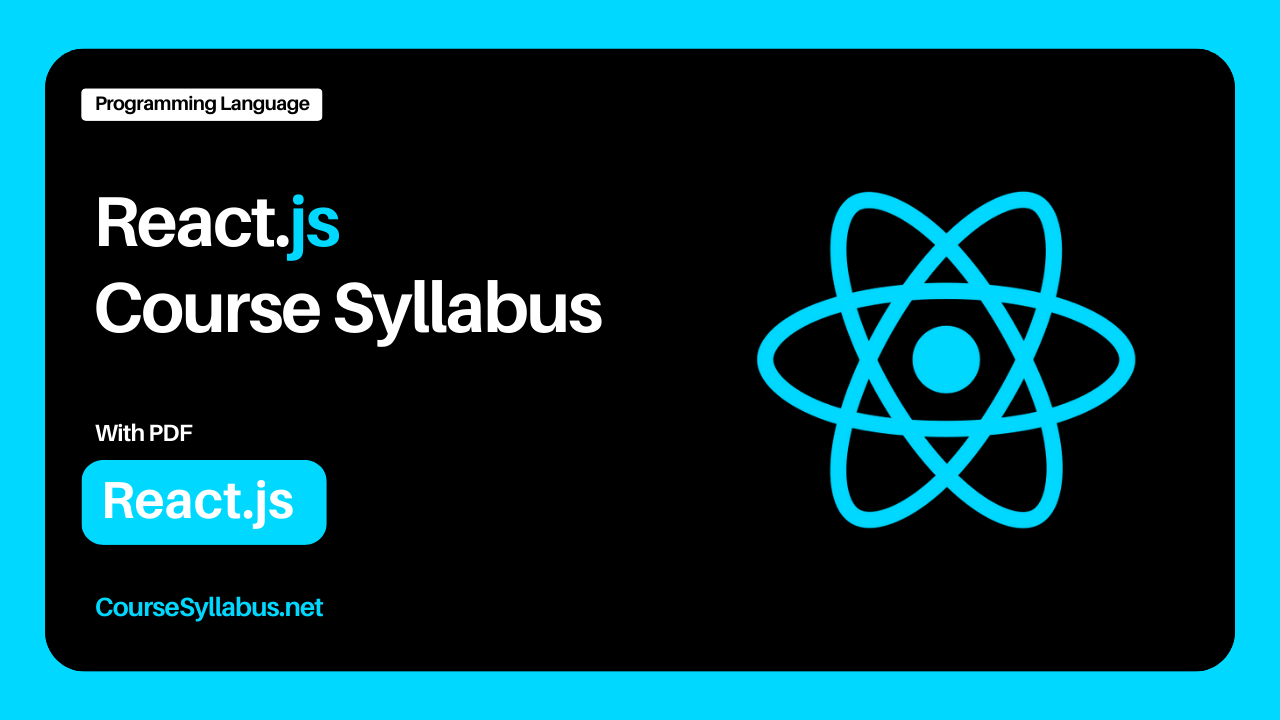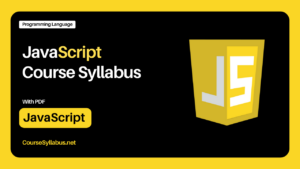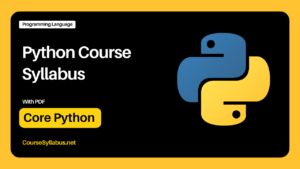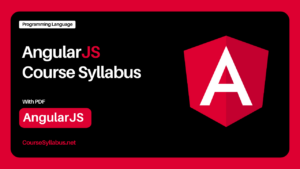React.js, commonly known as React, is an open-source JavaScript library developed and maintained by Facebook. It is widely used for building user interfaces, particularly for single-page applications (SPAs) and dynamic web applications. React was first released in 2013 and has since gained immense popularity in the web development community due to its simplicity, efficiency, and flexibility.
React has a vibrant ecosystem with a rich collection of libraries, tools, and extensions that complement its core functionality. Popular libraries like React Router for routing, Redux for state management, and Styled components for styling are commonly used alongside React to enhance development productivity and capabilities.
React.js Course Syllabus
Module 1: Introduction to React.js
- Overview of React.js
- Setting up development environment
- Creating a basic React application
- Understanding JSX
- Components and Props
Module 2: State and Lifecycle
- Introduction to state and lifecycle methods
- Managing state in React components
- Lifecycle methods and their uses
- Updating state and re-rendering components
Module 3: Handling Events
- Event handling in React
- Binding event handlers
- Passing arguments to event handlers
- Understanding synthetic events
Module 4: Conditional Rendering
- Conditional rendering in React
- Using if-else statements and ternary operators
- Logical && operator for conditional rendering
- Using && for inline conditional rendering
Module 5: Lists and Keys
- Rendering lists in React
- Understanding the importance of keys
- Using keys to optimize list rendering
- Conditional rendering within lists
Module 6: Forms in React
- Handling forms in React
- Controlled components vs. uncontrolled components
- Form submission and validation
- Handling multiple inputs
Module 7: Styling in React
- Styling approaches in React
- Inline styles
- CSS modules
- Styled-components library
Module 8: Component Composition
- Nesting components
- Passing data between parent and child components
- Using props.children for component composition
- Higher-order components (HOCs)
Module 9: React Router
- Introduction to React Router
- Setting up routing in a React application
- Route parameters and nested routes
- Programmatic navigation
Module 10: State Management with Context API
- Introduction to Context API
- Creating context providers and consumers
- Using context to manage global state
- Context vs. Redux for state management
Module 11: Introduction to Redux
- Overview of Redux and its principles
- Setting up Redux in a React application
- Actions, reducers, and the store
- Connecting React components to Redux store
Module 12: Redux Middleware and Advanced Redux Concepts
- Middleware in Redux
- Using Redux Thunk for asynchronous actions
- Selectors and reselect library
- Immutable.js for immutable data structures
Module 13: Integrating APIs with React
- Making HTTP requests in React applications
- Fetch API vs. Axios
- Handling asynchronous operations in React
- Best practices for data fetching
Module 14: Testing React Applications
- Overview of testing in React
- Writing unit tests with Jest
- Testing React components with React Testing Library
- End-to-end testing with Cypress
Module 15: Deployment and Optimization
- Preparing a React application for production
- Code splitting and lazy loading
- Optimizing assets for performance
- Deployment options and best practices
React.js Learning Resources
There are many resources available for learning React.js ranging from online tutorials and courses to books and interactive platforms. Here are some popular options:
Time for Learning React.js
The amount of time it takes to learn React.js can vary depending on several factors, including your prior experience with programming and web development, the amount of time you dedicate to learning, and your learning style. However, here’s a rough estimate based on different scenarios:
Beginner with no prior web development experience:
- If you’re completely new to web development and programming in general, learning React.js could take a bit longer.
- You might need several months to grasp the fundamentals of HTML, CSS, and JavaScript before diving into React.js.
- Expect to spend around 3 to 6 months to become proficient in React.js, assuming you dedicate a few hours each day to learning and practicing.
Beginner with prior web development experience:
- If you’re already familiar with HTML, CSS, and JavaScript, you’ll have a head start in learning React.js.
- With focused effort, you could start building basic React applications within a few weeks.
- To become comfortable with more advanced concepts and best practices, it might take around 1 to 3 months of consistent learning and practice.
Intermediate to advanced developers:
- If you already have experience with other JavaScript frameworks or libraries, such as Angular or Vue.js, you’ll find React.js relatively easy to pick up.
- You could quickly grasp the core concepts of React.js within a few days to a week.
- However, mastering React.js and its ecosystem of tools and libraries might require several weeks or months of exploration and practice, depending on your specific goals and the complexity of the projects you’re working on.
React.js Developer Career Opportunities
1. Front-End Developer: Create user interfaces and client-side web apps using React.js.
2. React.js Developer: Specialize in projects utilizing React’s component-based architecture.
3. Full-Stack Developer: Work on both front-end (React.js) and back-end technologies.
4. UI/UX Designer: Design intuitive interfaces aligning with React.js capabilities.
5. Software Engineer: Develop complex web applications with React.js.
6. Mobile App Developer: Utilize React Native for iOS and Android app development.
7. Technical Lead/Architect: Guide teams and make architectural decisions.
8. Freelance Developer/Consultant: Offer React.js expertise on a project basis.
9. Entrepreneur/Startup Founder: Build web-based products or startups with React.js.
10. Technical Trainer/Educator: Share knowledge through teaching or creating educational content.
Conclusion:
React.js is a popular JavaScript library for building dynamic user interfaces. Mastering React opens doors to careers in front-end and full-stack development, UI/UX design, mobile app development, leadership roles, freelancing, entrepreneurship, and education. With its widespread adoption, proficiency in React offers rewarding opportunities in web development.




